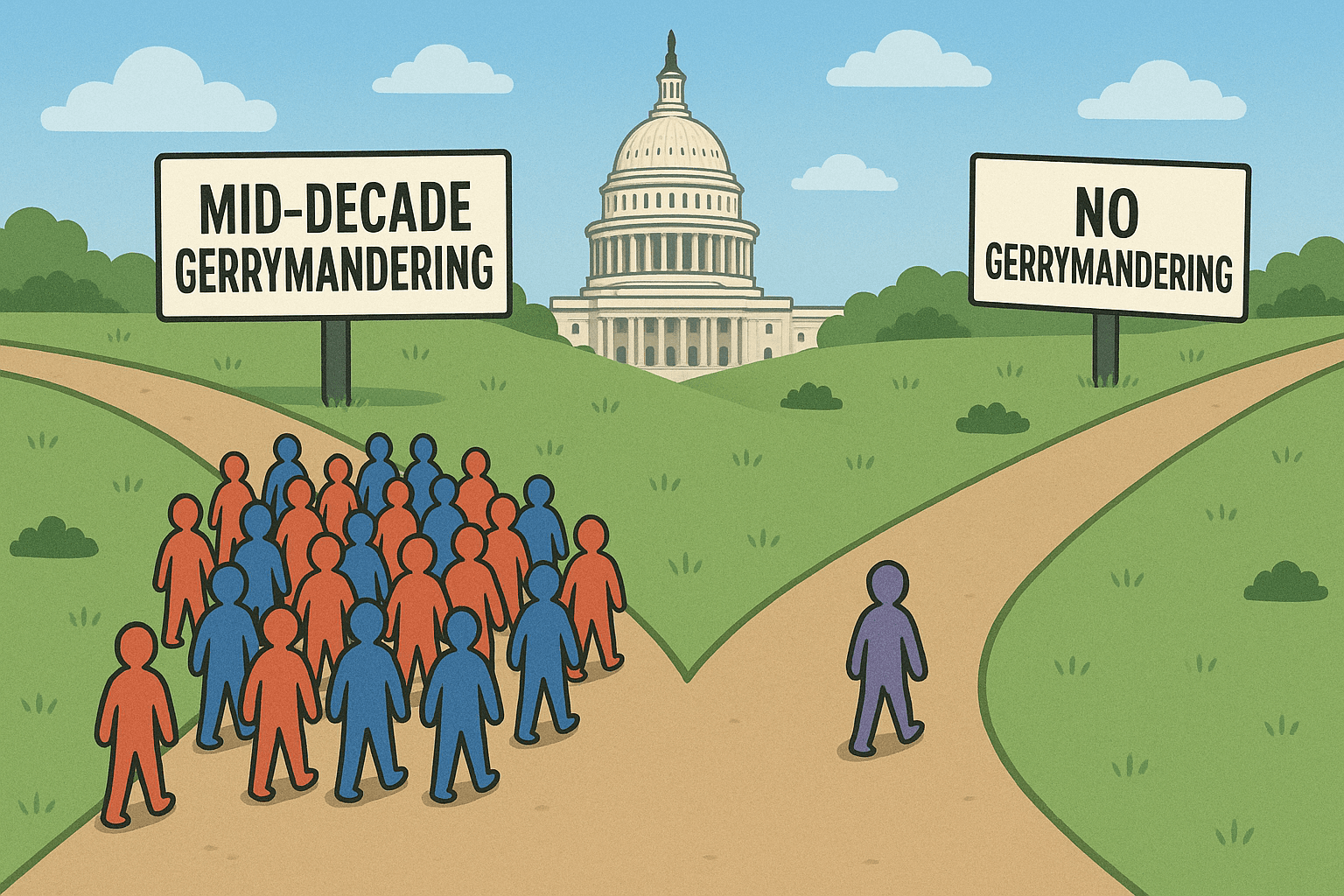Politics and Genetics: Political Polarization May Be In Our Blood

Over the last couple of months, I have repeatedly mentioned the recent findings by David Broockman, a UC-Berkeley political science graduate student who has shown that political “moderates” are a statistical fable.
Voters who pollsters label as moderate actually have conflicting extreme views that average to a moderate score, but no one would call someone who, for example, believes banks should be nationalized (extreme left) and schools privatized (extreme right) a moderate.
Broockman has reinterpreted polling data with this in mind and shown that not only do voters have more extreme views than their politicians, but that unengaged voters have even more extreme views than engaged voters.
Therefore, political polarization seems to be a fact of our reality rather than a passing condition.
Why do people have such extreme views? Where do our political personalities come from? The social science consensus has long held that individual political beliefs are mostly influenced by an individual's family, friends, school, environment, socio-economic background, and other various exogenous factors.
Avi Tuschman, who holds a Ph.D from Stanford University, does not deny that these factors play a role, but in his book, Our Political Nature, he contends there is something deeper at work: our genomes. Tuschman’s central thesis is that anywhere between 40-60 percent of the variation between people's political beliefs can be explained by genetics.
To stress, this does not mean that half of the reasoning of an individual’s views can be explained by his or her genes. What it does say is that the political differences between two people in a community can, to a great extent, be explained by the genetic differences between those two people.
Like most things in life, and politics, a lot of it boils down to sex.
Man is a product of the eons-long process of evolution. Over millions of years, millions of generations of our primate ancestors made mating decisions that enabled certain traits to advance and others to pass away. These mating decisions, iterated millions of times, not only evolved physical traits but also mental traits that, Tuschman argues, predispose individuals to assume particular political personalities.
Tuschman argues an individual’s political views can be determined by certain measurable personality traits that in turn are determined by his or her genetic makeup.
Two core personality traits -- openness to other people (especially those outside their kin group) and new experiences and respect for elders, tradition, social norms, and existing institutions -- break down to three major indicators: tribalism, attitudes toward inequality, and beliefs about human nature.
The notion that people with differing political views are physiologically different people is not new.
Tuschman assembles a cacophony of existing studies from anthropology, political science, evolutionary biology, psychology, behavioral economics, and other fields that show a relationship between political views and physiological differences. The book, rather than showcasing original research, ambitiously attempts to create a new unified field of the science of politics.
However, as with any 500-page tome, there are several flaws, some of which are not the fault of the author.
For one, Tuschman relies heavily on the political bell curve with normal distribution (which implies that the majority of people are politically moderate) that Broockman’s study, which came out after the book was published, threatens to demolish. Tuschman’s use of the debunked curve does not disqualify his thesis, rather it forces a reinterpretation of it.
In the introduction and conclusion, Tuschman simultaneously calls political polarization a grave threat to human welfare and an inevitable outcome of human interaction. He concludes:
“For in the end, the political dispositions described in this book need not be walls of stone or causes for fear or further polarization. Seen in their fullest light, these are just leanings, hurdles that each of us can learn to cross. The beauty of our democracy is that, at its heart, we are a nation of people, of individuals, each of us with our own character, or own will, and our own capacities to learn and grow and follow our dreams. And the more we learn and the deeper the understandings we gain of ourselves and of others, the more easily we will be able to transcend any attitudes that still divide us.”
This is a profoundly odd interpretation of democracy and his own findings.
Democracy is beautiful because it allows individuals to do the things he lists, but also to do the most important thing: fully express and act in support of political preferences they can not help but feel.
In other words, true democratic politics is, by its nature, polarized politics.
Places that lack political polarization usually lack democracy. It’s in authoritarian countries (and gerrymandered districts) where leaders are elected with super majorities and one party repeatedly wins elections.
Democracy is messy and dynamic -- what good politics should be, as opposed to controlled and ceremonial -- because wildly opposing preferences come into conflict and forge new ideas or vanquish them. And, this process is not a result of consensus.
We should know where our political views originate, and Tuschman provides compelling evidence of the significant role genetics play. But his book also shows that compromise and consensus are unnatural outcomes.




